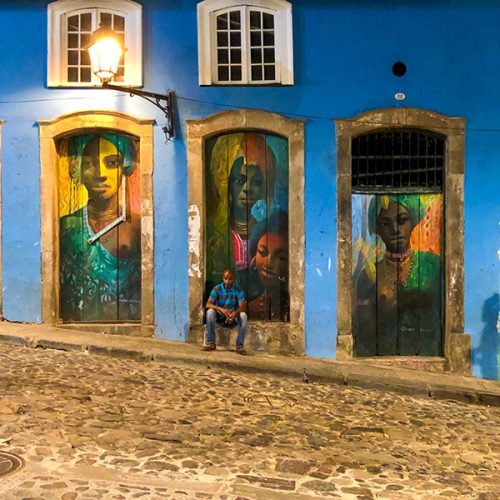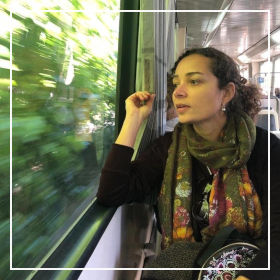Nowadays, most people are asking themselves what will happen in the coming months. In this time of COVID-19, it is not just the present that is under threat but the future, too. We are told to expect a great economic crisis as a consequence of the pandemic and, with it, new social problems. Especially in Latin America, the threat of a huge social crisis is imminent. People are losing their jobs, with no money to pay for rent, or even buy food for their families, which is already a visible reality in the streets of Argentina and Brazil. Many of these economic and social problems are not new to us, but they will increase in post-pandemic times. In this context, the presence or absence of the government is fundamental to decisions that guarantee lives and welfare. And education is a big slice of what I understand as welfare.
The presence of Argentine and Brazilian academic research scientists on the subject of coronavirus is really strong. From medical studies to social research, the role of academic professionals has been made visible across different types of media. Social scientific knowledge plays a significant role in analysing the social effects of the COVID-19 pandemic, and in warning about the new forms of inequality that may arise as a result of it. With this kind of information, both countries can prepare to care for especially vulnerable groups, such as homeless, women, indigenous, poor people, and so on.
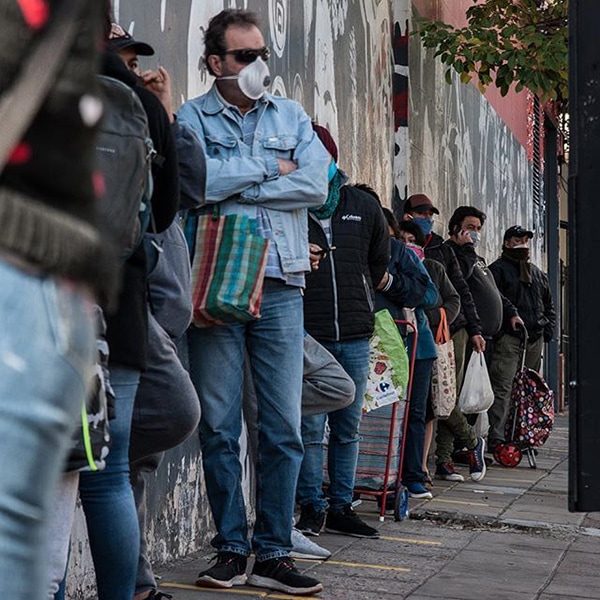
Argentina and Brazil: separated by policy
In Argentina, the government of President Alberto Fernández (in power since December 2019) has made significant efforts to maintain people’s health. Working with a group of scientists, Fernandez is analyzing the steps proposed by the scholarly community. Additionally, sixty-four research projects on COVID-19 have been approved in the past few months for research aimed at developing possible solutions related to the health crisis and social well-being. Among biological and medical project proposals, there are social projects that will be developed to help in particular suburban locations in Argentina. With the approval of this variety of research projects, it is clear that not only the medicine is important, but also social studies are fundamental to overcome the health crisis. The real effectiveness of some projects can be questioned, but I believe that the effort to include social problems generated by the pandemic in the overview of a future health crisis should be recognized in the context of Latin American public policies.
Education is a big slice of what I understand as welfare.
Some of this research shows that certain problems that are likely to occur in the post-pandemic period are not new. For example, the public presentation of the Institute of Geography at the University of Buenos Aires shows that precariousness in the homes of some Argentine communities is one of the possible causes of the spread of the disease. This is something that should be resolved with effective housing assistance plans. In other words, old socioeconomic problems are gaining visibility with the pandemic; the social sciences can reveal these and offer plausible solutions to the public and private organizations.
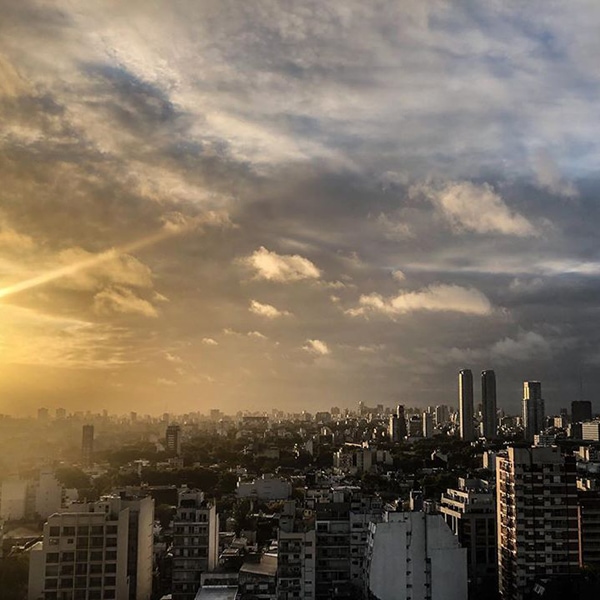
Many researchers and institutions have worked hard to understand, think and debate about how much the different spheres of Argentinian society are affected by the coronavirus. A great example is a project called Collaborative Map (Mapeo Colaborativo), which is an open platform that contributes to the collective development of a map which reflects the diversity of social initiatives in Argentina. The intention is to put together information about social organizations (institutions, universities, local organizations, etc…) and their actions against the social and health crisis. Monitoring public policies and making frequent diagnoses about social conditions in this pandemic period, researchers from humanities and social sciences hope to show to the public and to the government the economic difficulties generated by COVID-19.
If the current Argentine government is financing the development of projects humanities and social sciences in the context of the pandemic crisis, being publicly on the side of social sciences also means taking a stand against the previous, neoliberal government. By supporting social policies and the social sciences in generating solutions for the most vulnerable parts of the population, the Fernández government lends credence to its political discourse that the Argentine nation has to be rebuilt ‘between all’ (entre todos). Regardless of the political intentions behind this slogan, humanities and social sciences have been given more space and support. Thus, thinking about research as a public good gives the humanities and social sciences an important role in devising health policies.
In Brazil, the story is very different. This great country is suffering in many ways with the current government. What was bad before is really worse now. In this scenario, the attack on public universities did not start with the pandemic — it started with the Michel Temer government (2016-18). With a declared policy of neoliberalism, the Bolsonaro government continues to weaken the sciences, for instance cutting grants and the university budget. Not only the humanities and social sciences are suffering, but also the areas of biology and mathematics.
This is based on an attempt to weaken the public sector, especially education and health. There is a clear intention to privatize these sectors, releasing the State from the duty to maintain them. One strategy of the current government is to position the humanities and social sciences as a declared enemy, by saying that universities are influenced by left-wing students and teachers (understood as in favor of Ex-President Lula). With this kind of talk, Bolsonaro got support from parts of Brazilian society who also support the privatisation of the public sector. Based on some decisions made in recent months, priority areas were privileged (specifically technological areas), while social areas were, in a way, subordinated to them. With these decisions, the cuts in funds were intensified and disciplines such as history and the social sciences are seeing their projects lose strength across several dimensions, from the autonomy of choosing themes to the loss of interest of young people in gaining a professional formation in the area.
There is a clear intention to privatize these sectors, releasing the State from the duty to maintain them.
For a government that does not invest in quality public education and health, the humanities tend to be increasingly attacked. As humanities and social sciences do not offer immediate financial results from their research, they are at risk of being put in the shade. With the spread of COVID-19, the situation became extremely worrisome, because the Ministry of Health of Brazil does not dialogue directly with universities in search of solutions that attend the different needs that form Brazilian socioeconomic diversity.
What will happen to the humanities and social sciences in post-pandemic Argentina and Brazil?
It is not easy to say or even imagine. These days, we live in suspended time, when the world we know is being dissolved. Two neighbouring countries, Argentina and Brazil, are experiencing different political moments which, as seen, trigger different ways of facing the current health crisis. While Argentina is preparing to face the post-pandemic era with the help of academics and in an interdisciplinary way, Brazil is sinking into political fights, the spread of fake news, and placing staff with no experience in health positions — which entails the massive loss of lives. A social crisis generates an economic crisis and an economic crisis generates social problems that remain for generations. Poverty is a reality that cuts across both countries.
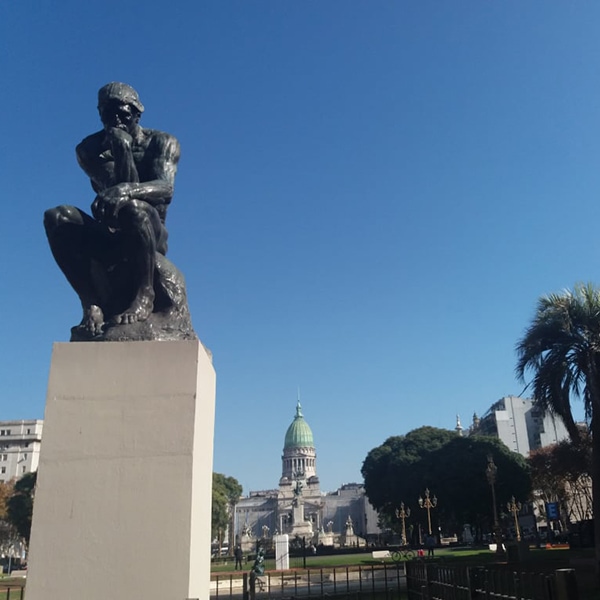
Actually, Argentinian social scientists have been working intensively, even before the pandemic, in community outreach projects with neighboring communities in vulnerable situations (rural, indigenous, women, children, etc.). With the public funding, the area of the humanities and social sciences will surely expand its research and have greater opportunities to apply its projects to society. Unfortunately, Brazil is going the other way. With the weakening of social sciences, the tendency is the loss of space within universities and in society itself. However, students and professors from Brazilian public universities do not stop fighting for the survival of the humanities.
Poverty is a reality that cuts across both countries.
We are being bombarded by a lot of vague or fake news in this singular moment. However, one of the more plausible hypotheses, in my opinion, indicates that the appearance of COVID-19 is based on socio-ecological interaction. The coexistence of humans and non-humans can generate a series of problems that are harmful to human health. Deforestation, the occupation of ecosystems, and their consequent devastation generate an unprecedented ecological imbalance. In short, it is possible that the coronavirus has been spread in a fatal way through the interactions between humans and wild animals and that its massive dissemination is related to the globalized world in which we live. In this sense, the biological sciences have a lot of research to do, but the Humanities and Social Sciences have the same fundamental role. Thinking of societies as a product of socio-environmental relations makes animals, vegetables, rivers, humans, among other elements, agents of equal importance when constantly interacting with each other. In this sense, I believe that one of the greatest contributions of the Humanities can be through Environmental History. This field of History is based on interdisciplinary research, in which biology, history, botany, geography, anthropology, among others, build a horizontal dialogue to think about past and current societies.
Environmental History can contribute, and is already contributing, a lot in the investigations on how to prevent other pandemics and how vulnerable populations can be better protected, based both on past experiences and on the current context. Through short texts, study groups, laboratories, blogs and web meetings such issues are already being debated, in order to offer scholars and the public possible solutions to be adopted by society. Environmental history, due to its interdisciplinary character, is able to strengthen the humanities and social sciences through the application of its disciplines in common projects, emphasizing that interdisciplinarity is the best tool to rethink human actions.
For these disciplines in general, organizing virtual activities with formats accessible to the public (via Facebook, Instagram, Youtube) would offer greater visibility to social research. I think that contact with the non-academic public is extremely important as a way of disseminating the work developed at the universities. For this, it is extremely necessary to listen to the different voices that make up the socio-economic spheres of the regions studied and to give them a place of favorable expression in the projects carried out.
Humanities and social sciences can reveal realities that are hidden behind the current health crisis, such as deforestation and the death of indigenous people.
Another factor to be considered is that Argentina and Brazil are two countries structured around the agrarian economy. Taking advantage of this characteristic and highlighting the agro-ecology that has grown in both countries is a way for the humanities and social sciences to get closer to the agrarian sciences. Thus, alongside the agricultural advances produced by agribusiness, it is possible to emphasize the importance of agro-ecology and its social actors for the maintenance of the population’s health and the conservation of environments — for example in what type of food and food distribution we really should adopt in the face of the crisis to come. At the same time, local growers and their produce, their tradition, wisdom and regional memory are valued. This is something that is already being done, but which could expand in a post-pandemic context, in which these actors are in danger of being forgotten. In this way, the humanities and social sciences can reveal realities that are hidden behind the current health crisis, such as deforestation and the death of indigenous people.
Connecting with teachers and students from local schools, scholars in the humanities and social sciences will be in contact with the different spheres of society (favelas, rural populations, indigenous people, peripheral schools and so on). Working with local basic education is essential for the formation of future generations and to arouse interest of young people in seeking possible solutions for the society in which they live. The pandemic shows that we are all vulnerable and, in this context, the humanities and social sciences of Argentina and Brazil must emphasize that what differentiates us is not only the skin color (black people or indigenous ethnic people, disproportionately disadvantaged in both countries), but geography, socioeconomic and cultural inequalities — something that needs to be rethought if we want to face a healthier future.
In conclusion, we have seen that Argentina and Brazil are currently experiencing different policies, however the humanities and social sciences face similar problems when looking at their fellow citizens of the respective countries. Complex and diverse, the social reality that we are experiencing is quite problematic, and unfortunately tends to get worse in the post-pandemic times. However, I believe that it really is a unique moment in which the humanities and social sciences can emphasize their role in society, showing that the post pandemic economic crisis implies social inequality. The humanities and social sciences will have the chance to prove that both biological and social conditions come together in the spreading of pathological agents; and that it is therefore essential that the Argentine and Brazilian nations take care of their most important base: their people, su pueblo, seu povo.
Featured image by José Muzlera (@jmuzlerafotos), Pelourinho, Salvador da Bahia, Brazil 2018.

